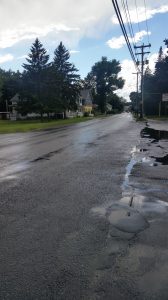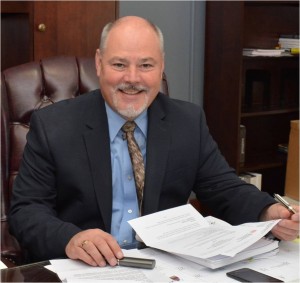WESTFIELD—It may not have been well-known, but the city is trying a new form of road repair on Union Street.
According to Westfield Mayor Brian Sullivan, the Westfield Department of Public Works (DPW) has started using a process called micro-surfacing on Union Street last week. This process helps to extend the life of roads that can receive the treatment and can potentially save the city money toward its infrastructure work. However, the work currently cannot be done in-house and only select roads can receive the treatment.
According to Sullivan, Union Street is the first roadway in Westfield to receive this treatment and it is being treated as a test for the process. Sullivan said that micro-surfacing is part of what the city is trying that’s different for roadwork, which many residents have grumbled about on social media and elsewhere.
“It’s basically a thin layer that goes on and can restore some of the oils,” he said. “It can lengthen some of the life expectancy.”
Specifically, David Billips, director of the DPW, said that micro-surfacing could extend the life of roads 15 to 20 years. Billips said that it works by applying a thin coat onto pavement, which helps to seal and protect the roadway of wear.
And according to both Billips and Sullivan, the treatment is more cost-effective than others currently being used.
“There’re a lot of different technologies for a lot of different roads, this is by far the cheapest,” Billips said.
“The cost is 40 percent of a milling and paving project, so it’s almost half the cost of doing what we did on Franklin [Street] and Southwick [Road],” Sullivan said.
However, there are drawbacks to the method.
First, Billips said that the streets that are currently available for the treatment are limited.
“The road has to be relatively flat, without any major flaws, there can’t be three foot potholes or multiple potholes,” he said.
In addition, although the cost is said to be lower, the technology and process cannot be done through current in-house options, according to Billips and Sullivan. However, Sullivan said that he believes it can one day become a technology the city can utilize, rather than through a third party.
“We still need some outside assistance, micro-surfacing is not something in house right now,” Sullivan said. “Because of the equipment to do that is pretty expensive.”
There is no definitive list of streets that will or can receive micro-surfacing, but city officials are reviewing which roadways can receive the treatment. However, Billips and Sullivan expect a portion of East Main Street to be the next to receive micro-surfacing.



